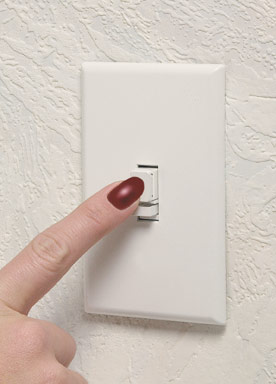After all the arguments have been discussed and the audience admits (seemingly against their better judgment) that in Theory this will work, people still walk away saying it is not politically feasible.
What is striking and disappointing is that the people who should support it the most the environmental movement are the fastest in running away from the idea. In 2002 I asked the Union for Concerned Scientists if they would discuss promoting the idea of a tax/rebate system. Their response was, “We don’t promote energy taxes because we don’t think they are politically feasible.”
In 2003 when I made a presentation before the Rhode Island Environmental Defense Council, a group representing all the environmental organizations in Rhode Island I was greeted with deafening silence. One person said the idea had merit but no one offered me additional forums to make my case.
In the book, Consumer’s Guide to Effective Environmental Choices, the issue of energy taxes is raised and the authors are very positive about their impact. However, in the end they walk away from them saying, “Perhaps they can become a part of efforts in Washington to generally overhall the tax system.”
While I suspect that the environmental movement has problems with market solutions, their lack of support seems to stem from a counter productive view of their role in the process.
Policy in America is changed from the bottom up. For instance if these guys with no standing or office hadn’t spoken out passionately and persistently they would still be riding at the back of the bus.

These individuals by their courage, wisdom, and example created a national grassroots movement that transformed America.
Individuals converting groups who pressure congress to change the world we live in is the way these things are done. The environmental movement has the capacity to effect these changes if they can marshal the will.
And it is quite clear that the American public is ready to hear the message. In a recent poll Americans were asked if they would support a tax on energy. Put in this way 85% opposed it. However, when asked if they would support such a tax if it helped stop global warming or improved homeland security, the public was in favor by a nearly two to one margin. This is without mention of a rebate!
While politicians never initiate great political movements celebrity can help. In this case Thomas Friedman the highly respected New York Times columnist has been very actively promoting a gas tax with his column and with a documentary on the Discovery Channel. When someone of his stature says, “ . . . a gasoline tax is the most important geo-strategic move we could make today . . .” that helps to make it an acceptable topic of discussion if not for politicians at least for environmentalists.
One other interesting matter here is that one would think that now that energy prices are rising people would be less interested in energy taxes. However, I have found that people are actually more open to the idea. They perceive it is a problem and they want a solution.
So, those who say you can’t do it are right. But We can.

























